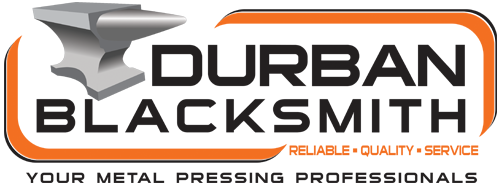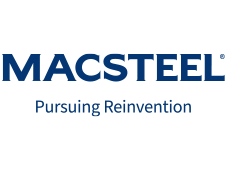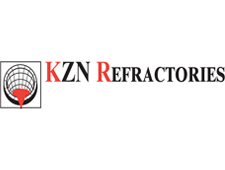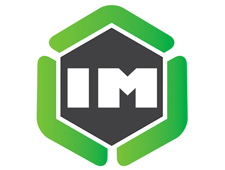Defy Appliances: Defy Cooks Up New Plan for Sub-Saharan Africa Expansion
Driving a new brand purpose, underpinned by vital strategic pillars, Defy Appliances is proactively looking to drive market share across sub-Saharan Africa. CEO Evren Albaş is keen to transform the business by implementing a collaborative approach across the entire value chain.
In 2015, long before Covid and before today’s economic turmoil had become part of the daily discussion in South Africa, one of the country’s leading manufacturing businesses was busy planning its continental expansion. Defy Appliances, part of the Arçelik Group, has been active in South Africa for more than a century. As one of the well-known house brands in South Africa, with the strong product and technology support from Arçelik, Defy believes that it can be a part of the rising middle-class economy in other African countries and improve daily lives of a wide-range of consumers across the continent.
In 2017, Evren Albaş was named as the company’s new CEO. Evren who has started his career in Arçelik Group as a young mechanical engineer 27 years ago, brought an appetite to accelerate Defy’s expansion into Africa and transform this century old brand into a regional powerhouse in the appliance industry.
Arçelik owns 12 brands across consumer durables and electronics, and operates in 146 countries around the world. Apart from Defy in South Africa, another notable brand is Beko – recognised as a market leader in the UK and known as a global sponsorship partner of Barcelona FC. Defy & Beko brands are widely used in Africa to leverage penetration into certain markets and product segments with different strategies at a country level.
SUB-SAHARAN GROWTH
“From the beginning of 2018, Defy started to operate as the regional headquarters of the Arçelik global export business in sub-Saharan Africa,” Albaş tells Enterprise Africa. “We are managing our business in South Africa as well as the other 34 markets in sub-Saharan Africa. From Nigeria and Ghana in the west, Ethiopia and Sudan in the east, and all the way down to the DRC, Zambia, Zimbabwe, Angola, Namibia, Botswana – these are all within our territory.”
The group has placed a major emphasis on the continent and is keen to gain a position among the industry front runners in all major markets, with a particular focus on major African economies. Where the Defy brand is not as strong as the Beko brand, the company will utilise all resources at its disposal to ensure market penetration.
“Continental expansion is very important for us,” admits Albaş. “To get Defy and Beko among the top three brands in the big African markets such as Kenya and Nigeria is a big target for us. We are doing everything to ensure we achieve this target including product strategy, strategic relationships, and good marketing.”
Currently, 80% of the product range sold into Africa – which includes washing machines, refrigerators, ovens, hobs, dishwashers, freezers and cooker hoods – is manufactured in South Africa at plants in Jacobs and Ezakheni. The balance is shipped in from Arçelik manufacturing facilities around the world.
“We are organically and inorganically well-connected to the markets in Africa. For example, in South Africa we have seven sales branches across the whole country and we have local and regional teams through dealer stores who manage the day-to-day relationships. We have this across Africa too. We have 34 dealers with at least one in every sub-Saharan country. We are about to invest into an assembly line in Angola, and opening our East-Africa sales subsidiary in Nairobi, and this local presence and local connection gives us an advantage in terms of supply chain management, accessibility, and managing relationships,” details Albaş.
Over the next decade, you can expect to see product development and innovation from both the Defy and Beko brands to ensure suitability for continental operation. Clearly, sub-Saharan Africa is a very important sector for Arçelik and Defy, with the group promoting the brand that best suits the markets needs, securing market leadership.
“Based on brand awareness, which is different in each country, we will go with Defy or Beko. Due to historical business connections, Defy is well-known in southern African nations like Zambia, Botswana and Namibia. On the west and east, we mainly promote Beko brands,” confirms Albaş.
In May, Defy announced completion and opening of its new Danskraal warehouse in Ladysmith, KZN. The R170 million investment creates 130 new jobs across 100,000m3 of space. More than 200 trucks can be processed each day, and the location – right by the rail link to the Port of Durban and close to the Defy manufacturing plant in Ezakheni – is perfect for Defy’s push into sub-Saharan Africa.
“With the commencement of the African Continental Free Trade Area (AfCFTA) as of January this year, the move to enhance our capabilities to service the African continent was prioritised, and with the opening our new warehouse and distribution centre, this could not have positioned us on a better footing. We look to pioneer the landscape of the African continent with superior local products, under our Defy and Beko brands to ensure a sustainable growth for the future,” says Albas.
Danskraal has been designated as a logistics development zone and is perfectly positioned to provide an efficient outlet across all of South and Southern Africa. To date, Defy has invested R642 million in the economy of the region, signalling a long-term commitment to the area.
SOLAR HYBRID
In February, Defy launched a ground-breaking new fridge freezer product which makes use of traditional electricity sources as well as solar energy when possible. The Solar Hybrid product switches between power sources based on the best available supply. The statistics speak for themselves: reduction in energy cost of up to 44%, food stays frozen for 49 hours even without power (load shedding), and the cost is less than R6000 – cheaper than most alternatives. This product has been designed with Africa in mind and will be an important strategic marker going forward. Defy is a ‘Proudly South African’ company, committed to enhancing capabilities and opportunities in South Africa and this, according to Albaş, helps differentiate the company from the rest.
“We have a real understanding of consumer market needs,” he says. “Africa is a different market and the buying attitude is different. Economic power in terms of scale compared to the world average is different. You have to adapt according to the consumer needs in terms of product innovations, cost structure and total cost of ownership when offering a product to consumers. Our local understanding really separates us from others.
“Defy is a South African company,” he continues. “We were established in 1905 and last year was our 115-year anniversary. As a company coming from humble beginnings, starting out producing cast iron parts, we are now producing state-of-the-art home appliances. There has been a big transformation in a country like South Africa which has had many ups and downs due to political system changes and macro-economic and social crisis. Surviving in such an environment and bringing the business to where it is today is a great transformational story which makes us resilient. We were here 115 years ago and we will be here for many years to come. This makes a big difference and gives great confidence to our business partners when it comes to the continuity of our business.”
The first-of-its-kind solar hybrid appliance was available through 78 stores around South Africa at the end of February. A simple installation process is managed, countrywide, by a trusted Defy partner and ensures longevity. By removing the need for costly inverters and batteries, this Solar Hybrid answers an often-asked African question, of bringing the total cost of ownership down dramatically. Defy will also soon roll out development of larger fridges and freezers to work with the Solar Hybrid system.
Acting as a leading solutions provider for the markets in which it operates is a key part of Defy’s new strategic brand pillars which Albaş will be pushing hard through 2021 and beyond.
BRAND PILLARS
By re-forging the company’s brand purpose, and looking at what the company stands for as a corporate citizen and as a global operation, Defy is bringing further global strategic alignment with its brand purpose to South Africa. At a group level, Arçelik aspires to the vision of ‘Respecting the World, Respected Worldwide’. Defy, through its own brand pillars, will drive this vision in sub-Saharan Africa.
“We are trying to roll out our new brand purpose and align that with our business strategies. We are excited to spell out this purpose: Pioneering our Future Together. It resonates very well in Africa which is a continent with obvious challenges but with a great and promising future,” he says.
“Internally, we have had workshops to make it crystal clear in terms of our core, what brings us in to the office and factory every day and what makes us work hard. We write this as our brand purpose and we strategize everything around that.”
The four pillars are: Pioneering Growth, Winning Together, My Defy, and Generational Custodians. For Albaş and Defy, these pillars encompass the entire Defy operation and provide a structural framework on how to move forward.
“First, Pioneering Growth. In order to do that we are continuously coming up with innovative products and tailor-making new technologies. We have launched the world’s first solar hybrid appliance – a clear requirement on a continent which is energy scarce and where cost of living is an important parameter.
“We are supporting this by investing in manufacturing efficiency and manufacturing quality. Right now, we have a lot of transformation projects in all of our factories. For example, our cooking factory in Jacobs, Durban is undergoing a big transformation where we are investing in a lot of new technologies. We are calling this project ‘Jacobs Reborn’. It is a fascinating name for us as this factory is 115 years old. Our company established here and is still operational here, and investing in Jacobs Reborn is meaningful for us.
“In Midrand, Johannesburg, we opened a large consumer experience centre to demonstrate all of the new product innovations to consumers. In Kenya, we are opening a big retail laboratory in Nairobi to bring a new retail understanding to how we sell the appliances.”
Defy also continues to invest in new businesses, including small domestic appliance and ecommerce offerings to generate more revenue for the company and for business partners, building a stronger industry.
Secondly – Winning Together. “This is a very important ambition for the entire company and we are trying to create a ‘one team’ understanding with our suppliers, workers, and dealers, and this is something we have become more aware of while we were under harsh lockdown,” admits Albaş. From 26 March 2020, South Africa entered its initial period of strict lockdown due to Covid19 – one of the world’s most severe. For many businesses, this time was fraught with worry and frustration, but Defy engaged its entire employee base and business partners, ensuring continued operations as one team, with one goal. Across sub-Saharan Africa, the company ensured that every member of staff was aware of their contribution.
“We were impacted but we managed to keep our operation up and running through this understanding,” says Albaş.
The third brand pillar is My Defy. This involves making use of the Winning Together mentality as well as a family understanding at an operations level, to support each other and grow together. “Our aim is to create a warm cosy feeling in the hearts and minds of our staff and our business partners when we talk about Defy,” Albaş adds. Transforming supply chains, delivery models, product diversification strategies and operational thinking will help Defy to lead the industry in a new direction.
“By implementing our brand values, internally and externally, we are involving our partners in the business – suppliers and dealers – and finding ways to express the Defy transformational message,” the CEO says.
“In order to do that, we are investing in breakthrough transformational projects like opening authorised service centres in South Africa so that we can accelerate our service quality. We are investing in Artificial Intelligence for our supply chain and demand planning – we are studying machine learning algorithms to model our production demand and sales forecasting. We are investing heavily in development of our R&D capabilities, going beyond the South African borders, hiring engineers from Turkey to come and work in South Africa.”
Defy will make use of the HR capabilities at Arçelik to identify suitable candidates for development programmes. Already, this scheme has taken African engineering students learning at premier Turkish educational institutions and helped them into the business to progress new product ideas.
The final brand pillar for Albaş is being Generational Custodians. “This is all about building a sustainable future,” he says. “What we stand for is what we stand on – there is no planet B and we must do all we can to protect and preserve so that future generations will live here happily and healthily.”
To better manage its footprint, Defy is increasing the use of recyclable materials in its production across almost every product group, utilising more energy efficient technology in its manufacturing facilities, and is following a range of other energy saving initiatives.
“For example, in South Africa, we started an energy efficiency awareness campaign which is mainly targeting raising awareness about importance of buying higher energy efficient appliances. We want to train as many consumers as possible on what the energy efficiency label means and how much you can save if you buy an energy efficient appliance. If all South Africans moved up one level on the energy efficiency index, we could stop using several old generation power plants and stop using coal.”
Arçelik is the global leader on the Dow Jones sustainability index with continued sustainability efforts. It is the only appliance manufacturer to be ranked in two consecutive years.
FOR AFRICA
Without a doubt, Defy has not let the Covid-19 crisis dampen its ambitions and has in fact become more determined to deliver its brand for upliftment and opportunity. For Defy, the company is more than white goods, it is more than revenue and market share, and it is more than 100-years of development.
“We have 2700 people and it’s a big workforce that we are very proud of. They connect our business with our brand purpose. We connected with people at every level and everyone knows about the strategic pillars. We are engaging everyone in the challenges and successes that we face, and we feel that everyone is well briefed in what is needed for the future.
“We also want to create more employment,” he confirms. “In my opinion, a sustainable future is not all about products saving energy and being more recyclable; we have to bring a more inclusive financial system to life in Africa. The number of jobs is limited and young people are out there looking for jobs, so if we can offer more jobs and employ more people, across all of Africa, that will be a great win. It will increase our social impact as a company and that is one of the most important objectives for us.
“There is very rich human capital – the population in sub-Saharan Africa is already over one billion people and that is expected to boom over the next 15 years. These are young, creative entrepreneurs from humble backgrounds. This brings an amazing positivity to the continent and we are very focussed on this, looking at how we can be a part of this growth with our strategy pillars.”
In March, Defy and Beko, in partnership with ATÖLYE, hosted an online event, Hack the Normal. The concept, labelled a ‘hackathon’, surrounded bringing together people from around the continent to share ideas that can solve African problems. Participants were encouraged to develop new products, services and business models – with potential for commercialisation. These ideas centred around existing challenges across sustainable living, healthy living and financial solutions. The event was a major success with 1038 participants, 108 teams, 709 individuals.
Top prizes, up to $5000, were taken by local innovators who will now receive the help and knowledge of Defy and its partners.
“We invited people from across multiple disciplines to come together to innovate new solutions to ensure a sustainable life in Africa, stimulate economic growth and improve the state of our world,” highlighted Albaş.
External relationships are also under the spotlight and will be enhanced. There was clear evidence of the company’s desire to foster connections during the country’s closed period as a result of the pandemic.
“Our business is not just buy and sell so we have a long-term relationship with our suppliers. We are continuously developing new products and we need to provide continuous support to our customers, which requires a great process and business alignment with our partners. We are organising strategic meetings with our suppliers annually so that we can make them part of our new designs and involve them in the strategy. We want to use their knowledge and engineering to manage our design processes in a more agile way. Although they are separate entities, they are integral to our business so we treat them as part of the company,” says Albaş.
One product that found itself among the Defy range as a result of the pandemic was a specially designed ventilator used to assist critically ill patients with breathing if they are sedated or struggling thanks to virus symptoms. Manufactured at the company’s plant in Jacobs, the Impilo – the word for ‘life’ in Zulu and Xhosa – was lauded recently for its innovation. Developed in partnership with the University of Cambridge Open Ventilator System Initiative team, the Impilo received the Royal Academy of Engineering’s President’s Special Award for Pandemic Service, as a result of efforts in manufacturing the mechanical ventilators for developing countries during the Covid-19 pandemic. The CEO praised local innovation and design teams, as well as the entire supply chain involved in bringing the lifesaving invention to the fore. Support from Arçelik, Beko, and Denel Land Systems was important and has helped to improve manufacturing methods in the country.
Clearly, Defy as a brand, alongside its global parent, is bringing original and innovative ideas to a market that is yearning for progress. With a refreshed brand purpose and a strategic roadmap detailing how this purpose can be achieved, Defy is well positioned to grow after the difficulty faced by all in 2020.
“It has been a long year but I am hoping and expecting, with the amount of science and technology in our hands now, that we can handle this and move on within this year,” Albaş concludes.





